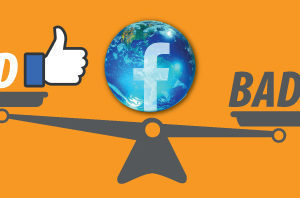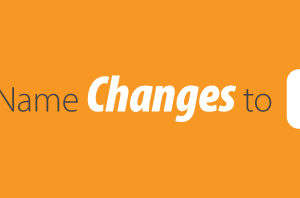
Volkswagen to Voltswagen of America? This name change was supposed to be an April Fools joke, but everyone took it a little too serious.
The goal of this campaign was to get their audience talking about their first all-electric sport-utility vehicle, but something bigger happened that they were not expecting.
As reported by Wall Street Journal on March 30th, 2021 by William Boston.
No, Volkswagen Isn’t Rebranding Itself Voltswagen
Volkswagen is staying Volkswagen.
Volkswagen AG’s U.S. subsidiary said Tuesday the company would rebrand itself as Voltswagen of America to promote its electric car strategy, but a spokesman for the parent company in Germany later said the move was a joke.
The name change, which immediately lit up social media and online news sites, was originally intended as an early April Fools’ Day stunt to get people talking about VW’s ambitious electric car strategy as the company rolls out its first all-electric sport-utility vehicle, the ID. 4, in U.S. dealerships, the spokesman said.
The problem for VW is that everyone took it seriously, creating confusion about the company’s intentions and moving the shares, putting VW’s communications team on the defensive.
“We didn’t mean to mislead anyone,” a Volkswagen spokesman in Wolfsburg told The Wall Street Journal. “The whole thing is just a marketing action to get people talking about the ID.4.”
The spoof began late Monday, when VW communications in the U.S. published a draft of the press release on the company’s website and then quickly took it down, according to VW officials in Germany.
They left the document online long enough to grab the attention of journalists and VW fans, sparking a flood of online news and tweets.
VW communications officials in the U.S. declined to comment at the time.
VW’s U.S. unit published the release in full again on Tuesday on the U.S. website, a move that suggested the name change was in fact real and would take effect as stated in the release in May.
The press release quoted Scott Keogh as president and CEO of Voltswagen of America saying: “We might be changing out our K for a T, but what we aren’t changing is this brand’s commitment to making best-in-class vehicles for drivers and people everywhere.”
Back in Germany, a VW official told the Journal that the name change shouldn’t be taken seriously.
“There will be no name change,” the official said.
But after it became clear the joke’s intended recipients were doing exactly that, officials in Germany scrambled to reach their colleagues at VW’s U.S. headquarters in Herndon, Va., to pull the plug on the campaign, according to Wolfsburg officials.
Volkswagen’s top executives have become more active on social media recently. The CEO, Herbert Diess, is a frequent contributor to his LinkedIn page and recently opened a Twitter feed. But until now the company has refrained from PR stunts or outlandish statements that are more typical of Tesla CEO Elon Musk.
Investors have been clamoring for shares of companies involved in electric vehicles and have recently been pouring money into the stocks of established car makers with solid EV plans.
The second publication of the press release helped send VW shares 4.7% higher on the Frankfurt stock exchange, handily outperforming the broad Dax index of German blue-chip stocks. In the U.S., the company’s American depositary receipts rose as much as 12% Tuesday before sliding near the close after the company confirmed the name change was a joke, closing up 9%.
Securities laws require public companies to speak truthfully to the market. If a company makes a statement that is misleading, it can open the firm to claims of market manipulation or hurt investors who relied on the misstatement when they made trades.
Kyle DeYoung, a former SEC enforcement official and partner at the law firm Cadwalader, Wickersham & Taft LLP, said that while there is a tradition of companies making April Fools’ Day announcements, usually they are so trivial or obviously a joke that they don’t move the company’s stock.
“I do think this is a bit of an unusual situation,” Mr. DeYoung said. “I would not be surprised if the SEC had some questions about what was going on here and what Volkswagen was thinking.”
The SEC declined to comment on Volkswagen’s actions.
In 2003, VW officials replaced dozens of road signs for the city of Wolfsburg with signs reading Golfsburg to celebrate the launch of the latest edition of its bestselling model. The campaign roused attention around the world and spawned a collection of Golfsburg souvenirs.
Among old-school auto makers, VW has been a leader in developing and launching new electric vehicles, aiming to switch to a largely electric fleet within the decade. But not all the press has been glowing, and executives at the company often complain that they don’t get enough credit for the company’s transformation.
The road to electric cars has been fraught with setbacks. The new vehicles—VW’s ID. 3 and ID. 4, the e-tron built by its luxury car maker Audi, and the Taycan made by its sports-car brand Porsche—have had to overcome obstacles and met with mixed reviews. The ID. 3, which wasn’t released in the U.S., initially struggled with software glitches.
The name change stunt comes as the company is eager to get U.S. consumers jazzed about the ID. 4, which went on sale in U.S. showrooms this month. The vehicle is a competitor to Tesla’s Model Y and has been praised largely as very good, but still not quite a match for Tesla’s offering.
Earlier this month, VW released earnings for 2020, which showed that the company had weathered the Covid-19 pandemic well.
Despite the pandemic, VW generated pretax profit of €12 billion, equivalent to $14.07 billion, down about 36% from 2019, on sales of €223 billion, down 12%. The company benefited strongly from China’s recovery, where VW generates more than 40% of its sales.
An April Fools joke gone wrong. When it comes to campaigns, a company has to think about how their audience will react. Remember in 2018, when IHOP faked their rebrand and it was beneficial for this company. Well, in Volkswagen case, this fake rebrand took a turn for the worse.
Additional PR Sources
Is Faking A Rebrand A Good Idea? (IDeas BIG)




